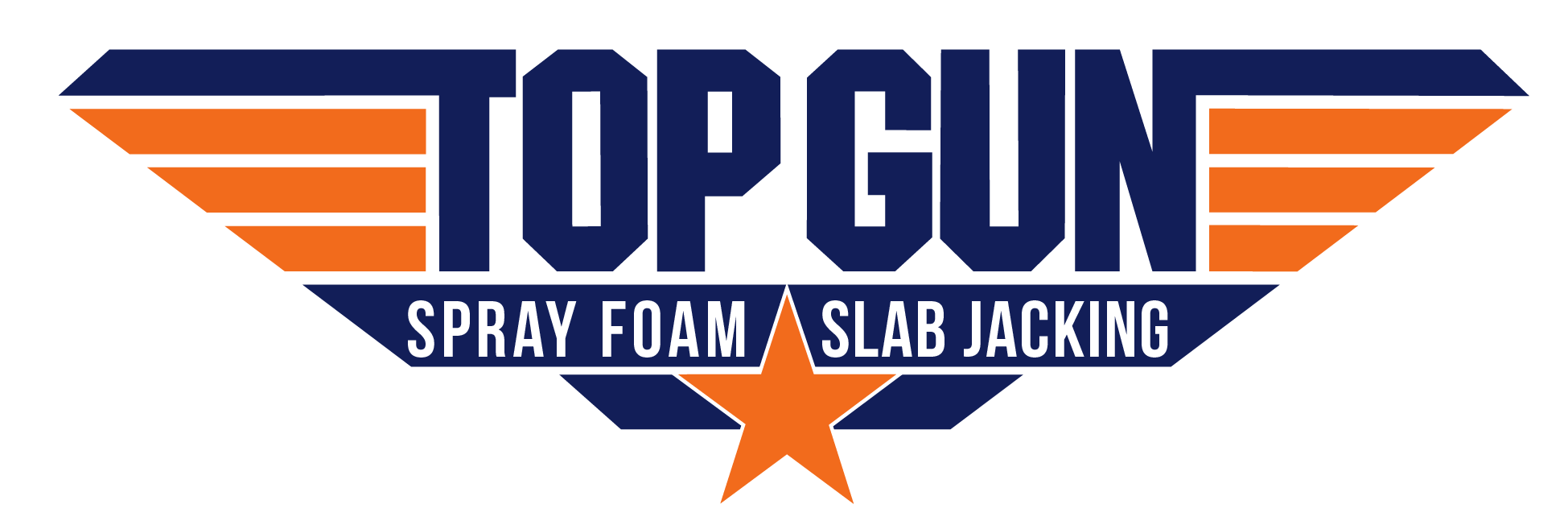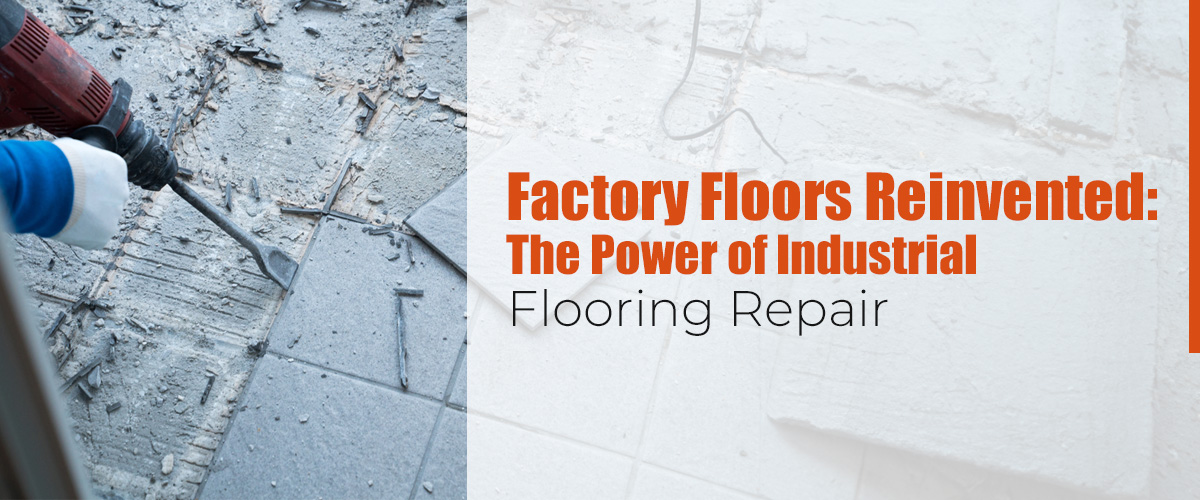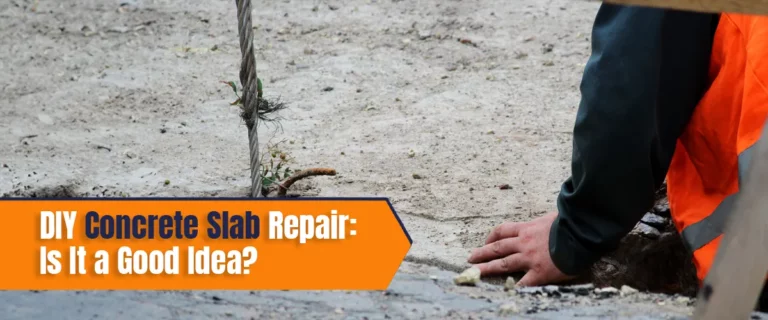Factory Floors Reinvented: The Power of Industrial Flooring Repair
Do you find it frustrating to manage factory floors that are cracked, uneven, and slippery, posing risks to the safety and productivity of your operations? If so, it’s time to consider Kansas Industrial Flooring Repair to revamp your worn-out surfaces. The foundation of any manufacturing facility lies in its factory floors, serving as the bedrock of operations.
Meanwhile, this article explores the transformative impact of industrial flooring repair and highlights its crucial role in ensuring safe and well-maintained factory floors. Additionally, by improving the condition of factory floors, businesses can:
- Enhance productivity
- Reduce accidents
- Improve overall operational efficiency
Moreover, focusing on prioritizing industrial flooring repair, this article highlights the potential advantages it can bring to manufacturing facilities aiming to succeed in a growingly competitive market.
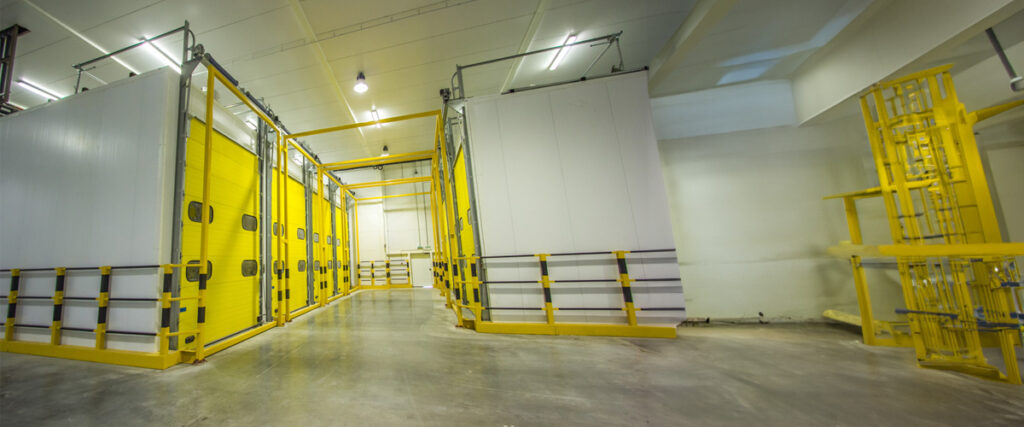
The Crucial Role of Factory Floors
Factory floors are essential in industrial operations as they provide a stable base for machinery, support heavy loads, and enable smooth movement of personnel and equipment. Additionally, soft and well-maintained floors enhance productivity by optimizing material handling and manufacturing processes and promoting safety by reducing the risk of accidents.
The importance of industrial flooring repair for operational efficiency includes the following:
- Repairing cracks and damages
- Leveling uneven surfaces
- Enhancing safety by addressing potential hazards
- Improving the overall functionality and longevity of factory floors.
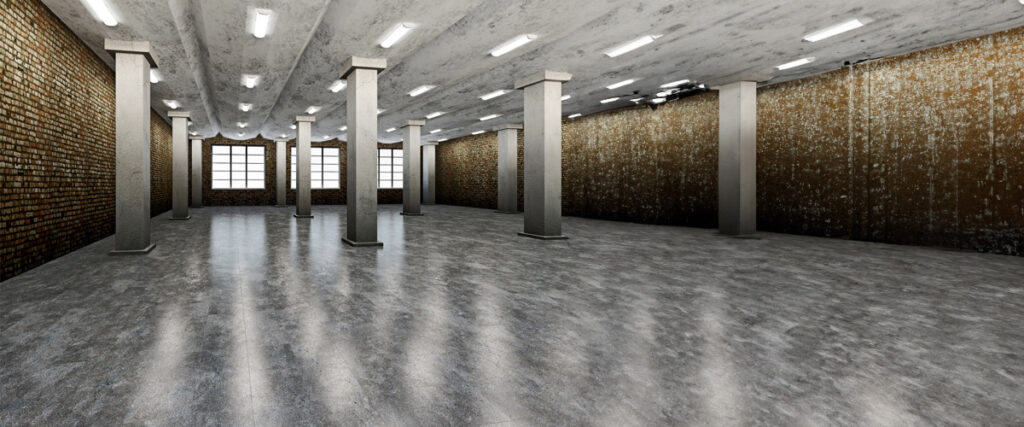
Common Issues with Industrial Floors
Industrial floors often encounter common issues such as cracks, wear, and chemical damage. These problems can arise from heavy usage, aging, or exposure to harsh substances. Daily operations can be significantly affected by these issues, including:
- Cracks can impede the movement of machinery and personnel.
- Wear can create uneven surfaces and increase the risk of accidents.
- Chemical damage can compromise the floor’s functionality and load-bearing capacity.
Addressing these issues is crucial because it helps to:
- Maintain a safe working environment
- Minimize disruptions and downtime
- Avoid future costly repairs and prevent further damage.
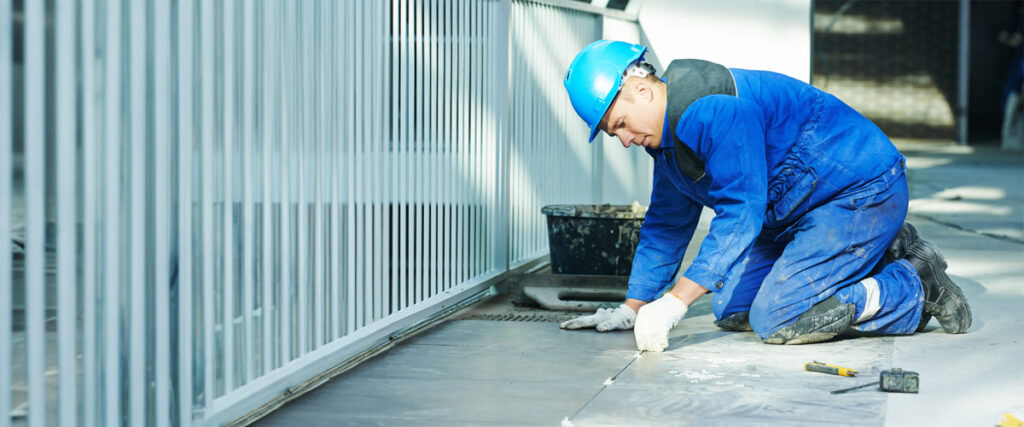
The Process of Industrial Flooring Repair
When it comes to industrial flooring repair, understanding the steps involved is crucial. These are the critical steps involved in industrial flooring repair that ensure long-lasting results:
- Inspection and assessment of the floor condition.
- Cleaning and preparation of the damaged areas.
- Repairing cracks and fractures.
- Apply a suitable repair technique or coating.
- Cure and allow the fixed floor to set.
There are various techniques used in industrial flooring, and each method addresses specific flooring issues, such as:
- Concrete resurfacing – A layer of new concrete is applied to restore the surface. Additionally, it improves the aesthetics and structural integrity of worn-out and damaged floors.
- Epoxy coatings – A protective coating is applied to enhance durability and resistance to chemicals and wear. Additionally, it offers a smooth, chemically resistant, and long-lasting surface that is effortless to clean and maintain.
- Crack repairs – Cracks undergo filling and repair using appropriate materials and techniques. It also prevents further damage, strengthens the floor, and ensures a safe and even operation surface.

Safety Considerations
Safety during industrial flooring repair is of utmost importance. It is crucial to prioritize the well-being of workers and promote a safe working environment throughout the repair process.
The following measures ensure workers and equipment safety include:
- Providing necessary protective gear to workers.
- Conducting regular safety training to educate workers on potential hazards and how to mitigate them.
- Implementing proper protocols for safe operations.
Here are tips for minimizing downtime and disruptions, such as:
- Thoroughly plan repairs
- Coordinate with stakeholders
- Utilize efficient strategies, such as working in sections, to maintain productivity during repairs.

Long-Term Benefits of Repair
Despite the inconvenience, investing in repair brings long-term benefits by saving time and money. Investing in repair can lead to tangible long-term benefits, such as;
- Improved safety
- Enhanced functionality
- Consistency in finish and texture
Benefits of industrial flooring repair include the following:
- Extended floor lifespan – Repairs address underlying issues, preventing further damage and extending the floor’s lifespan.
- Reduced maintenance costs – Proactive repairs also minimize the need for frequent fixes, resulting in cost savings in maintenance.
- Improved aesthetics – Repaired floors also enhance the visual appeal and professionalism of the working environment.
Additionally, repaired floors contribute to a cleaner and safer working environment by:
- Eliminating tripping hazards
- Minimizing dust and debris
- Enhanced safety

Choosing the Right Professionals
Selecting professionals for Kansas Industrial Flooring Repair is essential. These are the key considerations when choosing the right professionals for industrial flooring repair:
- Conduct thorough research to find reputable companies.
- Look for professionals with extensive experience in industrial flooring repair.
- Ensure they possess specialized expertise in the specific materials and techniques needed for your project.
Factors to consider when evaluating professionals include:
- Experience – Consider professionals with a proven track record in industrial flooring repair.
- Expertise – Look for experts with in-depth knowledge and skills in handling various flooring materials and repair methods.
- Reputation –Assess their reputation by reading reviews and seeking recommendations from trusted sources.
Qualified experts play a crucial role in achieving successful repairs. Their expertise also allows for:
- Accurate assessment of flooring issues
- Efficient recommendation of suitable solutions
- Effective execution of repairs

Case Studies and Practical Examples
Real-world case studies provide tangible evidence of the positive impact of industrial flooring repair. These success stories showcase different industries and facilities that have benefited from tailored repair solutions. Additionally, facilities that have benefited from repair solutions showcase industrial flooring repair’s positive impact on operations. These facilities experienced many positive outcomes and significant improvements through meticulous repair interventions, such as:
- Enhanced structural integrity
- Increased safety measures
- Extended equipment lifespan
- Streamlined operations

Renew and Thrive: Industrial Flooring’s Revolution!
In conclusion, industrial flooring repair is of utmost importance for manufacturing facilities. Well-maintained and safe factory floors are essential for optimizing productivity, reducing accidents, and ensuring the overall efficiency of operations. Therefore, businesses are encouraged to prioritize industrial flooring repair as a vital investment in creating a more productive and secure work environment.
Furthermore, by embracing preventative maintenance practices and promptly addressing repairs, facilities can enhance safety measures and improve operational effectiveness, ultimately leading to a thriving manufacturing operation.
References:
- Yadav, S. (2023, June 17). Importance of Industrial Flooring. Retrieved from https://www.linkedin.com/pulse/importance-industrial-flooring-sandeep-yadav
- Aruya, G. A., & Chukwuemezie, V. K. (2022). Causes of Cracks on Concrete Structures and Repair Methods. International Journal of Latest Engineering Research and Applications (IJLERA). Retrieved from http://www.ijlera.com/papers/v7-i09/4.202209381.pdf
- Vijayalakshmi, R., Ramanagopal, S., Sathia, R., & Raj, R. (2017). Case study on repairing and rehabilitating G+3Residential apartment near Sea Shore, Tamil Nadu, India. Indian Journal of Science and Technology, 10(26), 1–7. Retrieved from https://www.researchgate.net/publication/318791725_Case_Study_on_the_Repair_and_Rehablitation_of_G3Residential_Appartment_Located_Near_Sea_Shore_Tamil_Nadu_India
